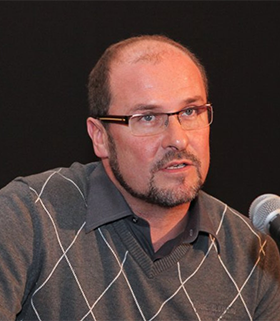

He was one of the initiators who designed the bases for the establishment of the University of Primorska as well as the initiator for the foundation and the first dean of the Faculty of Education of the University of Primorska in Koper (2003–2007). From 2007 to 2011 he was the Vice Chancellor in the field of scientific, research and developmental work of the University of Primorska. Since the establishment in 2004 and until March 2013, he was the head of the Institute for Kinesiology Research (IKARUS) at the Science and Research Centre, and a member of the Scientific Council of the UP SRC as well as the member of the Senate of the University of Primorska. Since March 2013, he has worked as the Director of the UP Science and Research Centre (UP SRC).
With other associates, he co-authored and initiated the foundation of new study programmes of Applied Kinesiology at the 1st, 2nd and 3rd level, and he also coordinates programmes at the Faculty of Ergonomics and Kinesiology Studies (NAKVIS 2011 accreditation).
His priority research areas include the study of motor development and motor learning, as well as the diagnostics and research of skeletal muscles, where emphasis is put on monitoring adaptive capacities of skeletal muscles. He transfers his research findings and numerous scientific experience to students within the scope of study courses at all study levels of the University of Primorska and at other universities in Slovenia and abroad.
Prof. Dr. Rado Pisot from Slovenia